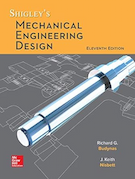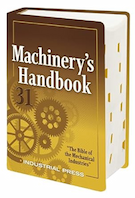7 Tips for Maximizing Your Investment in Continuing Education as an Engineer
Continuing education is a vital part of being a successful engineer. It keeps engineers up to date with the latest advancements in technology and engineering practices, which is essential for career advancement and success in the industry. However, continuing education can also be a significant investment of time and money, so it's essential to make the most of it. In this article, we will provide tips for maximizing your investment in continuing education, so you can get the most out of your courses and programs.

1. Set Clear Goals
Before you start any continuing education program, it's essential to have clear goals in mind. Ask yourself what you hope to achieve through this program, and what specific skills or knowledge you want to gain. Having clear goals will help you stay focused, and ensure that you get the most out of your investment.
2. Choose the Right Courses
Once you have set your goals, the next step is to choose the right courses or programs. Research the various options available, and look for programs that align with your goals and career aspirations. Look for programs that are relevant to your current role or the role you aspire to have in the future. We offer a set of online engineering courses that are ideal for engineers looking to advance their professional development along the technical career track.
3. Take Advantage of Online Resources
Online resources, such as websites and blogs, can be an excellent resource for continuing education. They often provide free or low-cost courses, tutorials, and webinars, which can be a great way to learn about a new technology or engineering practice. For example, we provide low-cost online courses for engineers, MechaniCalc provides calculators for mechanical and structural engineers, and Engineering Library provides a collection of public-domain engineering references.
4. Network with Other Engineers
Networking with other engineers can be an excellent way to learn about new developments in your field and connect with people who are passionate about the same things you are. Joining professional organizations, attending industry events, and participating in online forums can all be great ways to expand your network.
5. Look for Practical Application
Practical application is an essential component of effective continuing education. Look for opportunities within your job or within your own personal projects to put your newfound knowledge into practice. This will help you retain the information better and give you the chance to see how the concepts apply in real-world situations.
6. Review the Time Commitment
Before enrolling in a continuing education program, make sure to review the time commitment involved. Make sure that you have enough time to fully participate in the program and complete all the required coursework. Consider scheduling your courses or programs around your work schedule, so that you can balance your responsibilities effectively. The courses that we offer are all short-form and are designed to be completed within a brief time frame.
7. Evaluate Your Progress
Regularly evaluating your progress is essential to maximizing your investment in continuing education. Take the time to reflect on what you have learned and how you have grown as a result. Ask yourself if you are achieving the goals you set for yourself, and if not, what changes you need to make to get there.
PDH Classroom offers a suite of online continuing education courses tailored to engineers. These courses can be used to fulfill PDH credit requirements for maintaining your PE license, or just as a part of staying ahead in your field.
Continuing education is a crucial part of being a successful engineer, but it can also be a significant investment of time and money. By following these tips, you can ensure that you are getting the most out of your investment and maximizing your opportunities for career advancement. Whether you are looking to stay up to date with the latest advancements in your field, expand your skillset, or pursue new opportunities, continuing education is a valuable tool for success.




